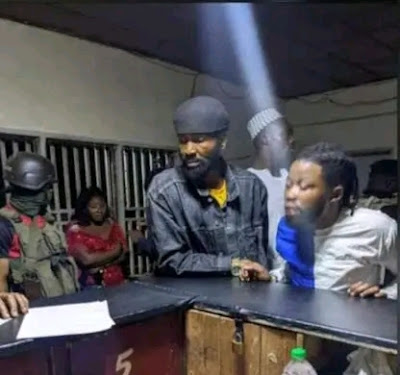16 Days of Activism: Stop Turning Women's Bodies into Battlefields in Restive Anglophone Regions
 |
| Web Photo Used For Illustration |
Colbert Gwain, CEO of A Common Future, Bamenda-Cameroon
Four years ago, a separatist fighter killed a 20 year old woman in Muteff village in Fundong Sub Division of the Boyo Division in the North West of Cameroon, after spending the night with her, and suspecting that she had 'fallen in love' with a fellow fighter in the same restive community.
Some five months ago, a group of fighters in the neighboring community gang-raped some three girls on their way to school, and when family members came weeping, one of the separatist fighters' commanders retorted by telling them not to weep because the act in itself was a blessing to their families.
This was interpreted to mean that the families rather needed to count themselves lucky that the 'new counter elites' would choose their daughters to 'ease off their tensions.'
Just three weeks ago, an armed gang invaded the Egbekaw village in Mamfe central Sub Division in the Manyu Division of the South West Region of Cameroon, raped and killed a 9-year old girl before also killing a pregnant woman in the process.
The above-mentioned examples are just a microcosm of the macrocosm of incidences that have been documented in relation to the disproportionate impact of the seven year old existentialist conflict in the two English speaking regions of Cameroon where activists fighting for a separate state for the minority English-speaking communities have been engaging regular Cameroon forces in battle.
When recently in Babanki in Tubah Sub Division of the Mezam Division in the North West Region, separatist fighters kidnapped and maltreated octogenarian mothers before releasing them; and the regular forces were called in to maintain law and order, incidences of the rape of women and girls in front of their loved ones were legend. At the same time, the same reports were recorded in localities in the Belo Sub Division in the Boyo Division of the North West Region.
Way back in 2017, when a state of emergency was still in force in the North West Region, a video went viral of a uniform officer raping an 18-year nursing mother at the Bamenda Vertinary Junction neighborhood as his colleagues watched, with the pretext that the teenage mother didn't carry along her identification papers even as the girl pleaded she just rushed out to purchase her baby's diapers.
A Bamenda-based organization, the Global Welfare Association, GLOWA, that has been documenting cases of Children Born of War, reports that the North West alone counts over 500 cases of teenage mothers who have delivered children with combatants and who till date struggle in vain to identify the parentage of the children. The same holds for the children born of war in the restive South West Region of Cameroon where women and girls most of the time, are forced to exchange sex for their safety in the hands of combatants.
The evidence points to the fact that as the conflict in the two English speaking regions of Cameroon intensifies and as combatants become outstretched, women's bodies have become the new terrain for conflict. While it has been documented by researchers in recent times that rape is an extension of the military strategy as when forces overrun a community and the male folk flee, they rape the women to show their superiority over the men in the community who couldn't defend their female folk; it has emerged from the seven-year-old conflict in the two English speaking regions that the non-state actors indulge in rape and forced marriages because the rifle gives them the power to take control of women and girls they wouldn't have had access to in peace time.
The transformation of women's bodies into new battlefields at wartime demonstrates in triumphant detail the connection between militarization and violent masculinities, and the disproportionate ways in which women and girls are negatively affected during conflict. It also accounts for the increased rate in domestic and intimate violence especially in the homes of combatants.
Many women continue to feel the effects of their abuse in psychological, physical, and social terms after the official end of violent conflict. While praying for a definite solution to be found so this violent conflict comes to an end; we urge survivors of the violent conflict to seek psychosocial and medical support from Mbeng's Diagnostic and Therapeutic Clinic, official sponsor of A Common Future 16 Days of Activism campaign.
You can reach out to them for your quality health care and tailored services at 677848842/698979112/654171135 or visit their offices at Yaounde-Nkolbison, behind l'hopital Irad and in Bamenda on the 2nd Floor, Quiferou Building, one way into Nkwen market.
drayinfos.com
+237 676238865







Comments